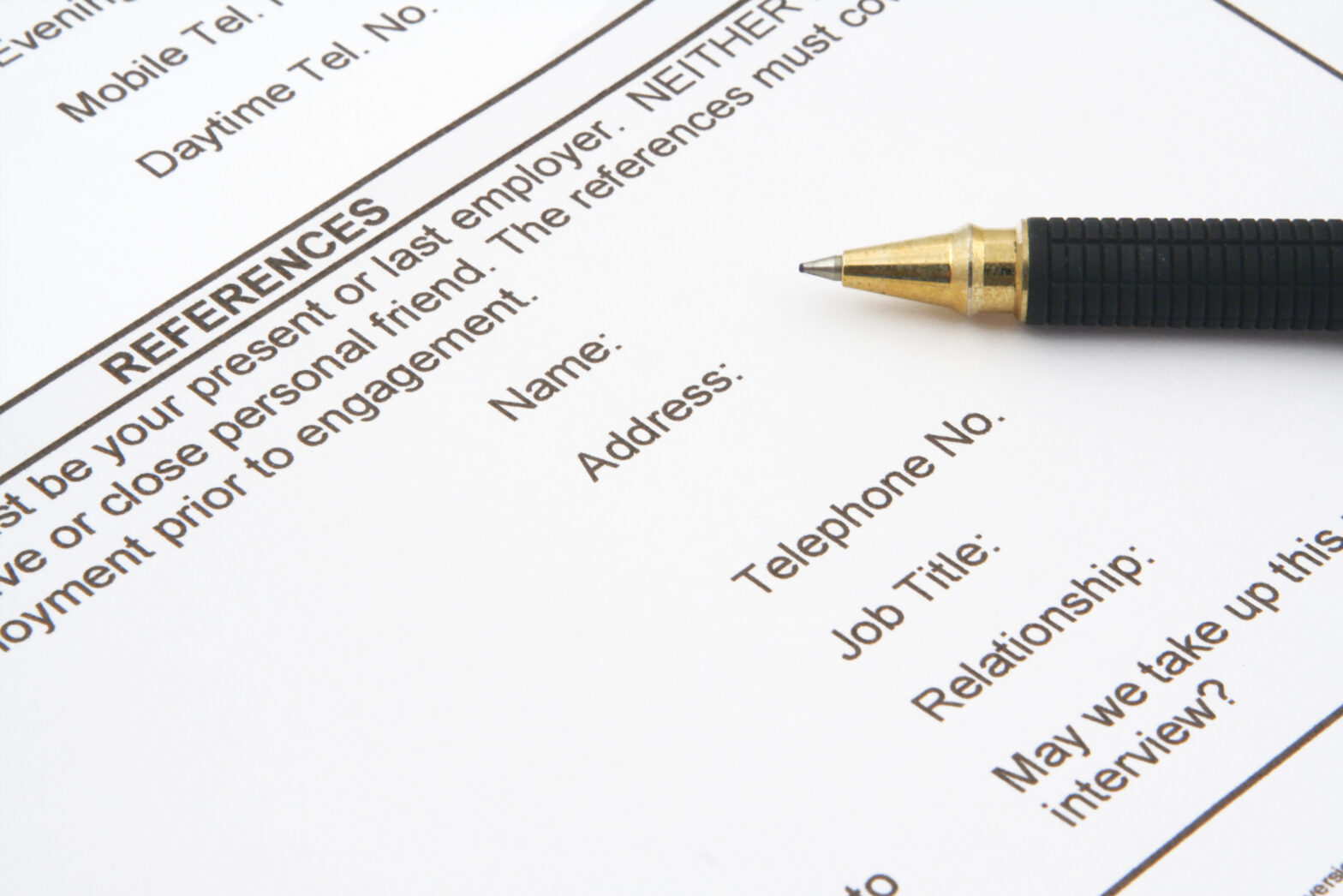You may not consider Mad Men’s Don Draper to have any wisdom that applies to recruitment, but trust this one maxim from the advertising saga: ‘People tell you who they are, but we ignore it – because we want them to be who we want them to be.’
When it comes to recruiting, you want to be sure about your candidates. They can submit fantastic CVs and ace the interview, but still not turn out to be a great hire. That’s why it’s important to check their references.
A thorough reference check can be a gold mine. It verifies the basics like employment dates, job titles and educational and professional qualifications. But it can also turn up crucial intelligence on a candidate’s reliability, training requirements and capabilities. It’s also a sure-fire way of showing you’ve done your due diligence as you can learn a lot about a potential recruit by talking to their current or former employer. And when you’re recruiting, don’t you want to have the most accurate impression of the candidate before you hire them?
When should a reference be requested?
This depends on what kind of industry you’re in. If you’re working in an environment with a high staff turnover and a focus on lower-skilled, entry level jobs, then ask for references as part of the application process. This will help you filter candidates. Alternatively, for professional, higher -skilled positions, references are usually asked for once a job offer has been accepted.
The process, stages and questions
Regardless of when you ask for references, there are five stages that make up any thorough reference checking process.
The first stage focuses on the referee and includes questions designed to help you establish, who they are and their relationship to the candidate. The next three stages focus on the candidate gathering information that will help you fact check their CV and establish their cultural fit and suitability for the role. The fifth and final stage is all about making sure the referee is willing to be contacted again if you have any follow up questions.
How to reference check
Reference checking can be done by using an automated and mobile reference collecting service, like Xref’s. This can make it easier and more convenient for referees to provide you with their feedback as they can do it on the go, and out of office hours. It can also help significantly reduce fraudulent references and encourage unbiased feedback.
The five phases for fast and successful reference checking
Phase one: Understand the referee
You need to understand the relationship between the candidate and the referee, so that you can judge the reliability and relevance of their feedback and how it relates to the candidate’s potential new role. Questions should include:
- What is your relationship to the candidate? Did they report directly to you?
- How long have you known the candidate? And what is your job title?
Phase two: Understand the candidate
Job- hungry candidates can be prone to exaggeration. So you need to confirm that the information on their CV is accurate. Questions should focus on specifics of the role and include:
- What was the candidate’s previous or current job title, responsibilities, remuneration and dates of employment?
Phase three: Assess the candidate’s previous performance
A CV can be tailored to fit a role but it’s only when you ask a previous employer for their perspective on a candidate can you really assess their skills and how well they might actually perform in the job. Some sample questions to gauge this include:
- Can you describe the candidate’s overall performance?
- Can you identify any core competencies? (e.g. communication skills, honesty and integrity, timekeeping and attendance) OR Are there any areas of improvement the candidate should focus on?
Phase four: Understand the candidate’s previous role
Understanding why and when a candidate left a previous role can offer a new employer some insight into what kind of loyalty and length of service they should expect. Hearing the referee’s perspective on the value the individual brought to their organisation can also either validate the claims they’ve made on their CV or give you reason to question or challenge them. Although this line of questioning comes late in the process, in my opinion, it’s the most important question you can ask. And if you’re short on time and you can only ask a couple of questions…make it these:
- Why did the candidate leave your organisation?
- Would you re-employ the candidate? Please explain why.
Phase five: Seek additional information & confirm the referee’s responses
It’s important to give the referee an opportunity to provide any further information they feel is relevant but falls outside of the standard questionnaire. This final phase also offers the opportunity to ask the referee if they are happy to be contacted at a later date, to clarify any uncertainties or ask additional questions.
- Are there any other comments you’d like to make on this candidate’s suitability for the role?
- Are you happy to be contacted again to clarify the references you’ve given?
The business case for accurate and insightful reference checking
Hiring the wrong person is a waste of time, money and energy, so it’s important that your screening and reference checking process is as effective as it can possibly be. The questions we’ve outlined above are the basic reference questions that you should ask when vetting a new recruit.
When done well, reference checking can provide you with insightful and instructive data. Data that can help you identify strengths, training needs and weaknesses as well as check basic facts. It’s also an essential part of proving that you’ve really done your due diligence on a candidate.
David Haines, is global sales director at Xref.





